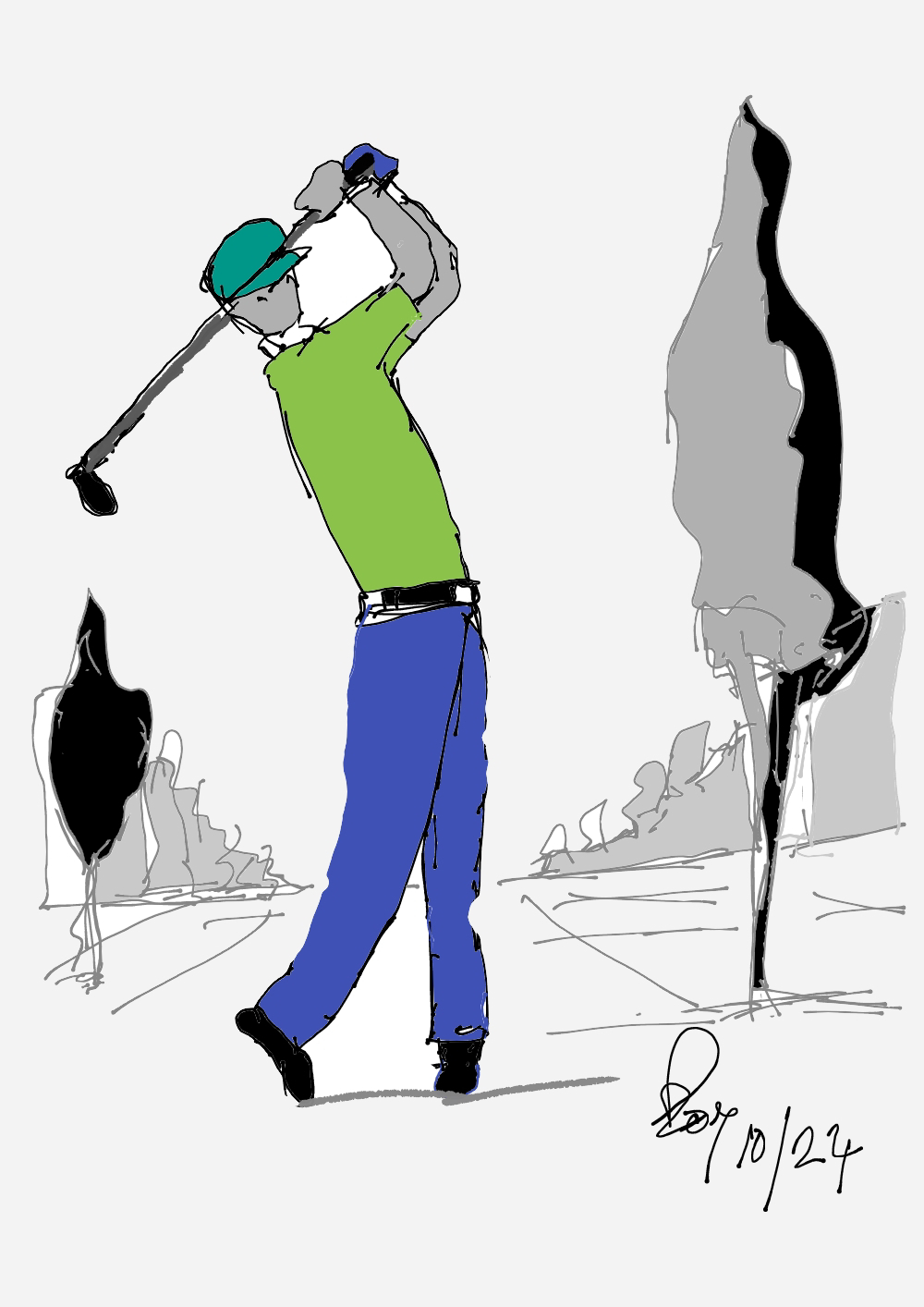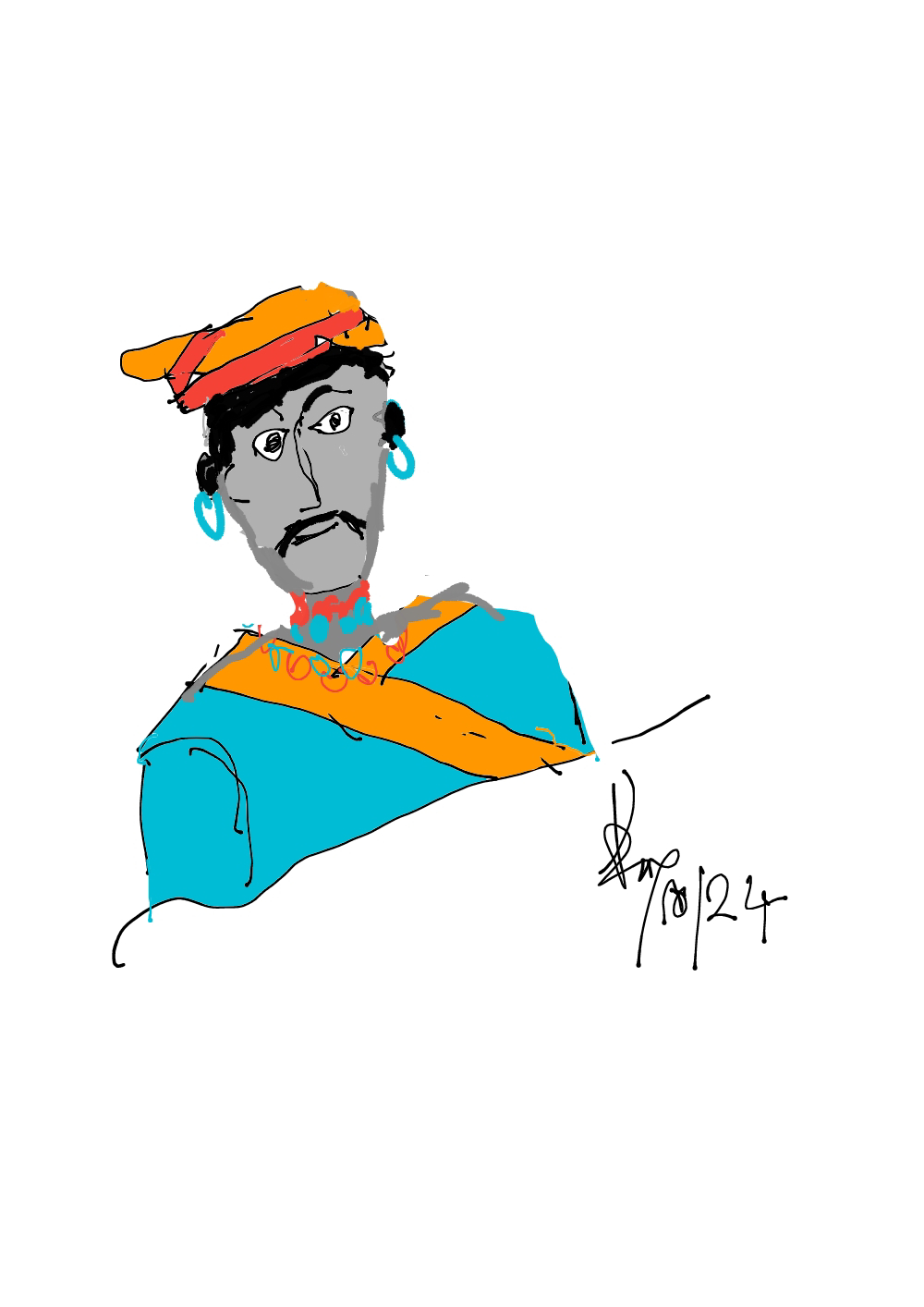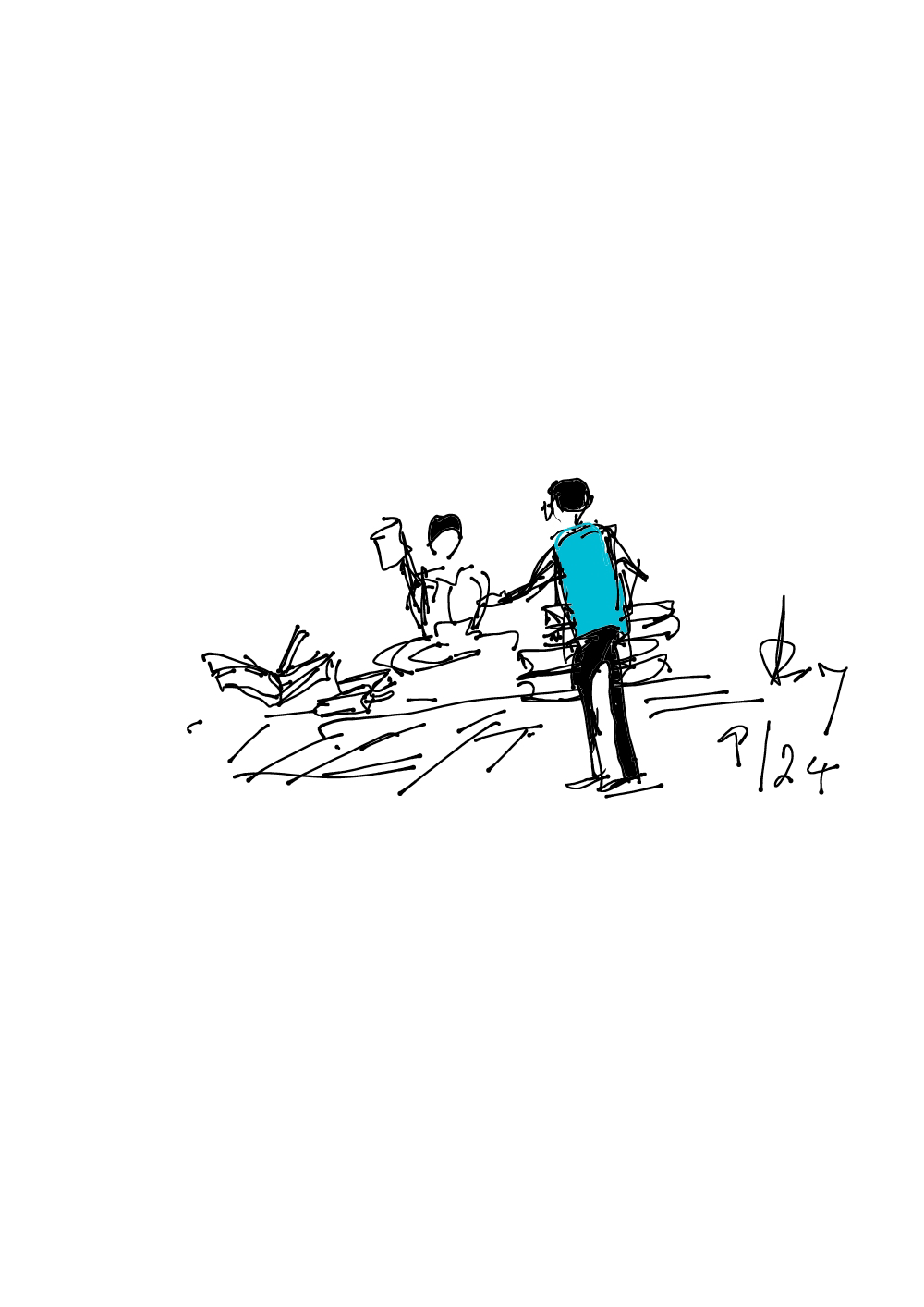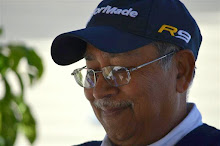Saturday, October 26, 2024
The ghost in the 5 wood
Saturday, October 19, 2024
The Sacred Linga
Monday, October 14, 2024
Reflections of Youth: Ramu’s Journey Through Time in Connaught Place.
---
Ramu was walking down Connaught Place in New Delhi, recalling the day when he was chased by a couple of goons from Paharganj in the '60s. The bustling marketplace, known as a haven for the elites, was filled with the sights and sounds of a different era. The wide, circular roads were lined with colonial-era buildings, their white facades gleaming under the warm sun. Cars were a rare sight, with most people opting for traditional tongas and the distinctive phut-phut of auto-rickshaws, which offered regular service from Connaught Place to the Red Fort.
As he passed the familiar old café, a sudden gust of wind brought with it the faint scent of spices, instantly transporting him back to that chaotic evening. He ducked into his favorite joint, Gaylord, though it was beyond his paying capacity; he knew the goons wouldn't dare enter, as it was the poshest joint in the area, frequented by the well-to-do.
The dim lighting and soft jazz music inside provided a stark contrast to the chaos outside. The gentle clinking of glasses and the hum of conversation created an ambiance that felt far removed from the outside world. As he settled into a corner booth, he noticed a familiar face at the bar—an old friend, Vishnu, who hadn’t changed much over the years.
Ramu hesitated to approach him, remembering that the last time they parted, they had actually fought. Just as Ramu was contemplating whether to slip out unnoticed, Vishnu turned, locking eyes with him. A brief flicker of recognition crossed his face before he raised his glass in a silent gesture of truce.
Feeling somewhat relaxed now that Vishnu was there, Ramu thought they could tackle the goons together, testing his martial arts skills once more. As they exchanged a few stories, Ramu couldn't help but feel a surge of adrenaline, imagining the possibility of confronting the goons together. Vishnu noticed his restlessness and grinned, "Still itching for a fight, Ramu? Let’s see if those goons are brave enough to face two old comrades."
Both walked out with clenched fists and taut muscles, all senses in sharp focus. Ramu thought it was better to fight in the alley behind Regal Cinema, where the evening crowd would not be disturbed; in the '60s, the crowd was not much. Nodding to Vishnu, Ramu led the way toward the quiet alley, where the shadows provided cover. The distant hum of the city faded, leaving only the sound of their footsteps.
As they waited, the eerie silence hinted that the goons might already be watching from the darkness. Ramu noticed the leader of the gang strolled cautiously with both hands raised, but he was not fooled by that gesture. Ramu narrowed his eyes, knowing the leader’s seemingly peaceful approach was just a ploy. His fists clenched tighter as he whispered to Vishnu, "Stay sharp. He’s up to something."
The goon leader stepped closer, a smirk on his face, as if daring Ramu to make the first move. Ramu nonchalantly pulled out his packet of Panama cigarettes and took out a matchbox, throwing a ring of smoke calmly. The leader paused, eyeing Ramu's cool demeanor with suspicion. Ramu took another long drag and flicked the match aside, his expression calm but ready. "What's the matter?" Ramu said with a smirk, exhaling another ring of smoke. Vishnu stood just behind him, silently watching, every muscle ready to spring into action.
Just then, Vishnu noticed the goon leader and came out whistling the popular tune of a Dev Anand movie, asking, "Do you really intend to fight or are you just trying our patience?" He loudly yawned. Vishnu's casual demeanor seemed to infuriate the leader even more. "Who do you think you are, clowning around?" he snapped, but Ramu could see the unease creeping into his posture. Vishnu, unfazed, continued whistling, "Just enjoying the show. If you're here for a fight, you better make it quick. We’ve got better things to do."
The psychological game played by Ramu and Vishnu paid off. The goon leader hesitated, caught off guard by their unexpected confidence and casual banter. Ramu seized the moment, stepping forward with a smirk. "You’re outnumbered and outsmarted. Why not walk away before this gets messy?" The tension in the alley shifted, and the other goons exchanged uncertain glances, clearly weighing their options.
Realizing his gang was losing their nerve, the leader shot them a furious glare. "What are you doing? Get back here!" But his voice lacked authority, and one by one, the goons turned and fled down the alley. Ramu and Vishnu exchanged triumphant glances, feeling emboldened as the leader, now isolated, shifted nervously, eyeing the two old friends.
With hearty laughter, they advised the leader to scram before he got a beating from them. As the leader turned to leave, Ramu called out, "And tell your friends that next time, they should think twice before picking a fight in Connaught Place!" The leader stumbled away, leaving the alley in silence.
Ramu and Vishnu shared a moment of camaraderie, realizing that their friendship had weathered time and conflict. As they walked back toward the lively streets, filled with the chatter of people and the occasional clatter of tongas, Ramu felt a sense of renewal—sometimes, facing old fears with old friends made for the best memories. They resumed their chatter, laughter echoing down the alley, leaving behind not just a past confrontation but also the promise of future adventures together.
Now, in 2024, as Ramu walked through Connaught Place, he recalled that fateful evening. He was now an old man of eighty, and the once-vibrant area had transformed; modernity had replaced the charm of the past, with sleek buildings and bustling crowds. Yet, as he strolled along the familiar pathways, memories flooded back.
He could almost hear the laughter he shared with Vishnu and feel the adrenaline rush from their confrontation with the goons. The walk felt like a journey through a time travel tunnel, transporting him back to that fateful day. Unfortunately, life had changed since then. He had lost Vishnu to COVID-19 in 2021, and the weight of that loss pressed heavily on his heart.
As he paused to gaze at the now-distant Regal cinema!Ramu couldn’t help but reflect on the fleeting nature of time and friendship. The memories of their adventures together echoed in his mind like scenes from his favorite book, Three Comrades by Erich Maria Remarque, where camaraderie and the bond of friendship shone brightly against the backdrop of a changing world.
He was relieved to see that their favourite joint Gaylord is still there in Regal building though the single screen Regal cinema hall has closed giving way to the modern Rivoli Multiplex.
With a bittersweet smile, he continued his walk, feeling the warmth of those cherished memories embrace him like an old friend. Though Vishnu was no longer by his side, Ramu carried him with him—forever a part of his journey through life.
---





